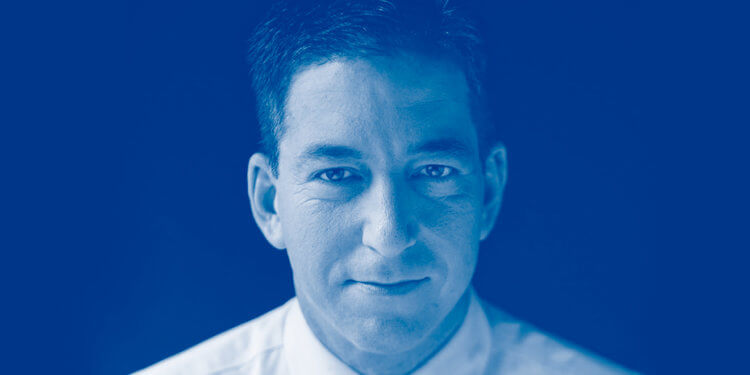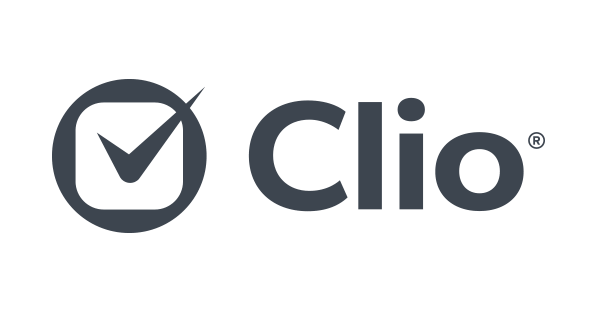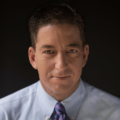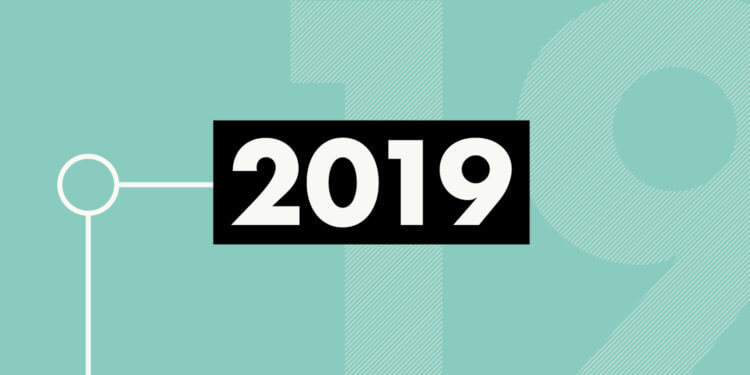

About the episode:
Does privacy still matter? And if so, how do we protect it in the Digital Age?
In this episode, Glenn Greenwald—the Pulitzer Prize-winning investigative journalist, constitutional lawyer, commentator, and best-selling author who brought the Edward Snowden case to the public—joins us for a can’t-miss discussion on privacy, and why it’s more important now than ever.
In his conversation with Matters’s Teresa Matich, Glenn discusses what he learned about privacy while covering the Snowden case; the diverse privacy concerns that the Internet and companies like Facebook, Amazon, and Google have created; and how issues of privacy will affect current and future generations. He also shares his perspective on how matters of privacy affect the legal industry, and what privacy standards legal professionals must adhere to.
Our Guests:

Glenn Greenwald
Glenn Greenwald is a former constitutional lawyer, an internationally acclaimed investigative journalist, and the author of several bestsellers, including With Liberty and Justice for Some (2011) and No Place to Hide: Edward Snowden, the NSA, and the U.S. Surveillance State (2014). Greenwald led the Guardian reporting that was awarded the Pulitzer Prize for public service, and his work was featured in the 2014 film Citizenfour, which won the Academy Award for Best Documentary.
Host bios:

Teresa Matich
Teresa Matich is the Content Strategist at Clio, where she’s responsible for educating the legal industry on market trends, best practices, and important issues impacting law firms. In her spare time, she enjoys traveling, snowboarding, and traveling to snowboard. Email her at [email protected] or tweet her at @TeresaMatich.

Andrew Booth
Andrew Booth is the technical producer for Matters, and works within the Business Operations department at Clio as the Learning Media Specialist. He is best known as the voice (and sometimes face) of Clio’s training videos. Andrew received his Broadcast Communications degree from BCIT, and has produced work for such broadcasting outlets as Global News and Roundhouse Radio. Email him at [email protected].

Derek Bolen
Derek Bolen is the Senior Manager of Customer Marketing at Clio, which means he gets paid to build relationships with the greatest customers in the world. When he isn’t working, he’s tweeting, reading, writing, podcasting, running, obsessing over fantasy football, or hanging out with his 5 year old son. Email him at [email protected], or tweet him at @hurrrdurrr.

Sam Rosenthal
Sam Rosenthal is a Content Strategist for Clio, specializing in thought leadership and creative content. A graduate of UNC-Chapel Hill’s journalism program, Sam works on literary fiction and screenwriting projects in his spare time. Email him at [email protected], or tweet him at @SamRoseWrites.
Show notes:
- Introduction: Matters producer Teresa Matich introduces Glenn Greenwald, and some of the key topics to be discussed during the episode.
- Glenn provides background on his work, and why he believes privacy is so important to protect.
- Glenn revisits his experiences covering Edward Snowden and the NSA.
- Glenn discusses how the influence of Silicon Valley has changed the privacy landscape for Americans and the world.
- Glenn looks at the pros and cons to the Internet from a privacy perspective.
- Glenn talks about the challenges of raising children who grow up in a digital world.
- Glenn examines why privacy issues are central to the practice of law.
- Glenn highlights the close relationship that journalism and legal practice have, and how the two often overlap.
- Glenn discusses ways in which legal professionals can better protect themselves—and their clients—to maintain privacy standards.
- Closing
Transcript
Read full transcript
Teresa: In our rapidly-changing world, privacy is still important. In fact, privacy may now be more important than ever—because it is harder to safeguard than ever.
And yet, many people take their privacy for granted. Some even view privacy similarly to Facebook founder Mark Zuckerberg, who once famously said that privacy is no longer “a social norm.”
Why does privacy still matter—and how do we protect it in the Digital Age?
I’m Teresa Matich, and this is Matters.
Matters is a podcast presented by Clio, the world’s leading cloud-based legal technology provider, where we look at small changes that can make a big impact on lawyers’ daily lives and practices.
Today’s episode looks at privacy, and why it matters. Our guest is one of the world’s foremost authorities on the issue—a Pulitzer Prize-winning investigative journalist, constitutional lawyer, commentator, and best-selling author.
His name is Glenn Greenwald, and he was one of the leading individuals involved in covering the Edward Snowden case and disseminating the details to the public, which made people aware for the first time of the National Security Agency’s extensive surveillance operations carried out on millions of Americans.
Glenn’s TED Talk, titled “Why Privacy Matters,” has been viewed more than two million times. I sat down with him before he gave his keynote address at the 2019 Clio Cloud Conference, and I interviewed him about the importance of protecting personal privacy at a time when doing so is incredibly challenging.
During our conversation, Glenn discussed what he learned about privacy while covering the Snowden case; the diverse privacy concerns that the Internet and companies like Facebook, Amazon, and Google have created; and how issues of privacy will affect current and future generations.
Additionally, we spoke about the ways in which issues of privacy affect the legal community, and the responsibility legal professionals have to educate themselves on privacy standards, protocols, and best practices.
It is a powerful conversation with implications for us all—and it is a privilege to share it with you.
Teresa: Glenn, thank you so much for joining me.
Glenn Greenwald: Yeah, great to be here. Thank you for having me.
Teresa: I’m sure everyone has heard of you and you need no introduction, but could you please introduce yourself for our listeners who may not?
Glenn Greenwald: Sure. I’m Glenn Greenwald and I am a former constitutional lawyer. I stopped practicing law in 2006 or so in order to start writing about politics and have become a journalist and have worked as a journalist ever since.
Teresa: Great. And a lot of your work has centered around privacy and the protection of privacy. So why is privacy so important?
Glenn Greenwald: It’s something I’m going to talk about in my speech today and have talked about a lot in the past and it’s not actually an easy question to answer. People understand for example, why healthcare or the ability to send their children to schools or have food for your family is important. Privacy tends to be a little more ethereal, but I think we all instinctively understand why it’s so important. We all take steps to make sure we have it. We put locks on our bathroom and bedroom doors and we use passwords for our social media accounts because we all realize that it’s critical that we have a space we can go to where we’re not constantly being monitored and scrutinized and judged. It’s sort of the place in which creativity and dissent and exploration exclusively reside, and a society without privacy would be very conformist, very kind of submissive. And I’d say that’s the crux of it. And then there are political values to it as well, that people need to be able to organize against government without power structures knowing what they’re doing.
Teresa: Absolutely. And that’s something that I think a lot of people would take as a basic human right. And when you first started your Edward Snowden reporting, it became aware that that wasn’t the case. How aware were you of these privacy issues before you broke the Edward Snowden story?
Glenn Greenwald: So, like a lot of people, I had long suspected that the US government, and it’s more technologically sophisticated allies as well as adversary governments like China and Iran, were attempting and probably succeeding in using the internet as a tool of mass surveillance. But it was impossible to prove that because everything was being done secretly without any kind of accountability democratically, without any transparency. And so in a lot of ways the Snowden documents provided the confirmation that a lot of us suspected of what had been taking place, but on a far greater scale than any of us, even in our worst nightmares imagined was taking place. And so I think that even those of us who thought that the government was spying in ways that they weren’t explaining, were kind of shocked by the magnitude and extent of not only what they aspired to do, but had actually succeeded in doing.
Teresa: Yeah, it was absolutely incredible and I think shocked most of us. Did that change your view of protection of privacy and how much is needed in any way, or was it not a surprise?
Glenn Greenwald: I think what it did is, I kind of intuitively believed that privacy was a fundamental value and a prerequisite to basic human freedom, but as we discussed a little bit earlier, it’s a little difficult to articulate exactly why, because it tends to be more of an ethereal or abstract concept. And what it forced me to do being at the center of this, what turned into a global debate that was quite contentious at times, was really hone my ideas and perspectives and arguments about why privacy actually matters and why people who think that they don’t value it, in fact really do—and the reasons that they do. So it would lead me to read a lot more, to think a lot more, and to kind of perfect my case for why privacy is important.
Teresa: Absolutely. And there’s a lot of different pieces and sides to the NSA reporting. So what do you think is the biggest misconception that you hear from people when you say, like, they think they might not value privacy but they actually do, and it’s very ethereal?
Glenn Greenwald: Yeah, I mean I think that one of the things that has happened is that there’s a very powerful industry called Silicon Valley that has a very strong business motive to convince people that they ought not to value their privacy. And there’s been somewhat of a stealth campaign, but at times more explicit and out in the open to try and persuade people that privacy is this kind of archaic or obsolete value. Mark Zuckerberg famously or infamously declared that privacy is no longer a social norm. There’s lots of other examples of executives in Silicon Valley making similar points.
Glenn Greenwald: And the reason is obvious that those companies need you to provide willingly as much of the data about your personal life as you possibly are capable of providing to them because that’s what they monetize and profit from in all sorts of ways. And so I think over the last six years since the Snowden reporting and then kind of since privacy debates expanded from concerns over state spying into private sector invasions of privacy, a lot of people have come to grapple with the reasons why they value privacy more than they might’ve thought they did during the time before the Snowden reporting forced them to confront it.
Teresa: Absolutely. And then even beyond governments looking into people’s personal information, maybe too much, there’s stuff like the Cambridge Analytica scandal and different elements of businesses using data and getting into people’s privacy to influence elections. And yet people still use Facebook. It’s still one of the world’s biggest social networks. So how much do you think has really changed and what still needs to change?
Glenn Greenwald: Well, I think it’s one of the great dilemmas that we actually face is kind of not just the democratic world, but as humanity, which is the internet still is this incredibly potent and promising technological innovation that we don’t want to just burn down and throw away and decide that we don’t want to have anything to do with it because of some of the risks and threats and dangers that it poses. Because it does still have the capacity to revolutionize how we organize, how we communicate, to eliminate a lot of the inequities that came from only large corporations having a monopoly over the dissemination of information.
Glenn Greenwald: So at least speaking for myself, I am somebody who still sees huge promise and potential and positive impact in the internet. And so I think we need to be very careful that as our awareness does grow of the dangers that it poses and the abuses that it enables, that we not kind of throw away the whole thing in order to prevent the harms and to figure out a way how to balance the dangers from the benefits.
Glenn Greenwald: I mean, I know when television first arose, everybody declared, oh, it was the end of all human thought. It was going to turn everybody into morons and idiots. Nobody was going to read books anymore. People were just going to have their brains filled with garbage. And there was an element of truth to that critique. But at the same time, television has brought to huge numbers of people, millions, hundreds of millions, information that is incredibly valuable for them to have. And I think all technology always ends up having a dark side and a bright side. And the question is how best to manage it.
Teresa: Absolutely. Do you have any thoughts on how best to manage it?
Glenn Greenwald: Well, I do think that we need to start grappling with the fact that there are a very small number of companies, particularly Facebook, Google and Apple, that have a degree of power and wealth and especially data that is completely unprecedented in the history of humanity and politics. Those three companies are more powerful than essentially every nation state. And that presents the challenge, the question: How do you regulate or control corporations that are more powerful than the government seeking to regulate and control them?
Glenn Greenwald: On the other hand, I think that especially in the West, it’s now there’s a growing recognition that these companies for a variety of reasons can actually start to pose serious threats. As you alluded to earlier, to the very existence or at least the health and vibrancy and legitimacy of democracy. And if countries unite, as I think countries in Western Europe and in North America are starting to do, to at least impose meaningful restrictions on these companies, there’s obviously talk of breaking them up or at least treating them like utilities, of regulating them.
Glenn Greenwald: Then you can start to have constructive ways of thinking about at least how to curb their abuses. I am very wary personally of anything that empowers either governments or large corporations to regulate or censor the content of internet, but ways of limiting their power as corporate entities the way large trusts like Standard Oil and others were broken up at the turn of the century, I think provides a promising model.
Teresa: Yeah, absolutely. I think that’s a really good allegory with Standard Oil. I wanted to talk too about how there’s a bit of a generational gap here. So I know when you talked to Edward Snowden at first it was very like, why? Why is this young person throwing their life away? But for him it is his whole life. The internet is so integral to your identity. So I’m curious, how do talk to your own children about this? Because their entire life, they’re not going to know a world without the internet, like people older than the age of 30 do.
Glenn Greenwald: Yeah. I think that’s a really fascinating point. I used to, I remember when I was growing up, I used to ponder the peculiarity that my grandparents were born into a world without a whole slew of technologies that ended up being central to how I, as somebody who was born into a world with that technology already existing, understood the world. Things like television and air travel and telephones. And I always wonder what it must be like to be born into a world where suddenly this world changing technology is born. And I no longer have to think about that, because I now know that experience because I didn’t use the internet until I was 24 or 25, when I was in some little, tiny chat room in CompuServe, when I was a first year Wall Street lawyer with my door closed, ignoring my work in order to use the internet.
Glenn Greenwald: And now that, my husband and I, we adopted two children about two years ago. There were eight and 10, they’re now 12 and 10. And I watched them, they don’t know what television is, for them, they don’t even know what Netflix is. For them, television is YouTube. And I watched them essentially living their lives through their telephones, interacting with the world, not through books or even in person interactions, but through technology of the internet. And I think a lot about what it’s going to do to their brains and what it is doing to their brains and what it’s going to do to their experience to know, for example, that every thought that they have ends up being permanently recorded. Or to have so much of our in person interaction replaced by this digitalized interaction.
Glenn Greenwald: I don’t know that we can even begin to anticipate because the technology is so incipient and the research is so incomplete, what the effects are going to be on this new generation of kids who are the age of my children and lots of other people’s, who are basically born with the internet as their primary means of understanding the world.
Teresa: Yeah. And so do you try to teach them in any way about cybersecurity, this is what you don’t say on the internet or anything? Or is it kind of, as you mentioned, like it’s so incipient, is that kind of a moot point?
Glenn Greenwald: Well, it is one of the things that I worry about the most is, because my husband’s a Congressman in Brazil, he’s a public figure. And a lot of my work is very public as well. So we have had the conversation with them before about how things they’d say on the internet can have repercussions for them and for us and how they need to be a little bit careful. And even for kids who aren’t, don’t have parents who are in any way doing public work, there’ve been lots of cases where people become well known at the age of 22 or 24 and then suddenly people start digging through their tweets when they were 12 and 14 and find things that were imprudent to say from an adult perspective. But were the kinds of things that teenagers just say.
Glenn Greenwald: And I always think the thing for which I am most grateful in the world is that there was no internet to record my every thought when I was 15 and 20 and 22. I can only imagine what my enemies and adversaries in the world of politics and journalism would do with those things. And I worry that, if we talk too much to our kids about curbing their speech or being too cautious about what it is that they’re saying, think about the kind of conformity that we’re essentially imposing on them or saying to them, never deviate from orthodoxy, never question pieties, never express any views that society regards as dissenting or immoral or wrong. It’s incredibly confining, especially for a pre-adolescent or adolescent when a kind of right a passage of adolescence is experimenting with transgressive ideas and challenging conventional thoughts, a lot of which are often proven to be wrong. And so I do worry. Part of my work with Snowden was based in that concern that a surveilled society is one that produces conformity and I worry about that with my own children as well.
Teresa: Yeah, there’s kind of two sides of the same coin. You have to be protective, but also you need to protect that freedom so that you can have the freedom to not be conformist.
Glenn Greenwald: Yeah. I think, what I’ve told them before is look, if you want to say anything that you think you’re not supposed to say, just don’t say it on the internet.
Teresa: Okay.
Glenn Greenwald: Say it to your friends or say it to each other or find a place that you think you’re not being heard and watched and do it there.
Teresa: Yeah. Okay. So we are at a conference for lawyers. So I want to ask you a little bit about your history as a constitutional lawyer and how that’s affected your views of privacy in your work today?
Glenn Greenwald: So one of the, I began my work as a young associate at a Wall Street law firm, and hated it and left after 18 months, mostly because it was the exact opposite of the work I wanted to do with my life. I have friends, I have nothing against it, I have friends who are still lawyers in Wall Street firms, but it just wasn’t the kind of work I wanted to do. So I ended up doing a lot of first amendment work for people who have a lot of unpopular ideas, who were the target of legal efforts to try and punish or sanction them for the ideas that they were expressing. So for me, maybe it was because I grew up in a world in which being gay was stigmatized and kind of denounced and you were supposed to internalize this judgment that I ultimately came to find invalid.
Glenn Greenwald: Part of it might’ve been because of that, part of it might be just because of my personality. But I do think it’s crucial to have a world in which there’s space to be different and to experiment with dissent and ideas that deviate from the norm, because the norm is often wrong and needs to be questioned and challenged and subjected to skepticism. And so a lot of the work I did as a lawyer was about that, was about ensuring, which is what I think the first amendment is about, that no matter how much majoritarian sentiment there is against whatever you think or want to say, you still have the right to be able to say it without legal sanction being imposed upon you. And I see the right of privacy very much the same way, that its principal value as we discussed earlier, is it provides this space where you feel like you can experiment and explore and engage in dissent and questioning without this kind of mechanism of societal enforcement imposing orthodoxies on you and demanding compliance with them.
Teresa: So I know that you left your work as a constitutional lawyer, as you said for political writing, but also because you felt that that you’d be able to make a bigger impact that way. But do you think that people who are still in the practice of law have a role to play in protecting privacy? And what would that be?
Glenn Greenwald: Definitely. I mean some of the people that I work most with and for whom I have the most respect, for example, are lawyers at the ACLU, who not only do the legal work themselves, but work with lawyers in a lot of the firms that I had interviewed with and worked at and decided I didn’t want to continue with, who have the capability and the power to defend a lot of these rights on a pro bono basis or on behalf of clients. I think the legal community has a crucial, vital, central role to play in defending privacy and defending the rights of political dissent without court precedent, without legal decisions, without judicial challenges.
Glenn Greenwald: I don’t think these rights would have very much chance of thriving or surviving. So, it was funny during the book signing that I just did, somebody said to me, “Oh, I wish you were still practicing law because we need more lawyers like you.” And I said, “Actually a lot of times I feel like, even though I thought I was changing career, that a lot of the work I do feels a lot like the work I was doing as a lawyer because things like advocacy and working to protect rights is very similar to I think what law does in its most noble sense.”
Teresa: Yeah. Do you know, is any of your work ever used, like referenced in any of these judicial challenges or anything like that that might be challenging? I mean, because my next question was, lawyers have a duty to uphold the law, but what happens when those laws aren’t protecting the citizens and, say the NSA is doing things without a lot of transparency, but in their eyes they’re following the rules, debatable, but…
Glenn Greenwald: Yeah, I mean, in the NSA reporting that we did, it led to a slew of legislation where, first of all, a lot of the programs that we exposed were just challenged as unconstitutional on their face. And a lot of those lawsuits prevailed. There were several circuit court decisions declaring, for example, the mass surveillance program domestically that we exposed as being in violation of the fourth amendment, which obviously cited and not only cited, but centrally relied upon the work that we were able to do as journalists. And even to this day when it comes to illegal spying or particular criminal cases where the courts have used the NSA technology to spy illegally domestically. The work that we do is cited in footnotes and cited by courts still to this very day.
Glenn Greenwald: People, lawyers write to me all the time and show that to me. So it’s actually very gratifying. And also, you know as well, the work led to a lot of congressional reform too in response to the judicial decisions ruling these NSA programs illegal. So yeah, there was a lot of repercussions in the legal world from the journalism we were doing.
Teresa: Right. So nobody’s working in a vacuum. It’s all kind of feeding in together as this group of people that’s protecting the rights of individual citizens.
Glenn Greenwald: Yeah, I mean this year, for example, the bulk of my journalism has been in Brazil. And in particular there’s a big scandal because for a long time there was this huge anti-corruption probe in Brazil where this crusading judge and a team of prosecutors put a lot of people in prison … And we got this kind of Snowden-like file, this huge archive of hacked conversations between the judges and prosecutors that revealed that all along the main judge was actually collaborating with the prosecutors while pretending to act as a neutral judge. And so it began as journalism, right? We were publishing a lot of the material we got from our source. We were writing news stories that were shaking Brazilian politics and now the repercussions are in the courts where they’re nullifying a lot of the convictions, they’re considering freeing multiple defendants from prison. So I think the world of journalism and the world of law generally intersect when they are at their best.
Teresa: That’s really cool to hear about.
Glenn Greenwald: Yeah, it’s been a fascinating and sometimes dangerous, but really fulfilling six months of work.
Teresa: Absolutely.
Glenn Greenwald: Yeah.
Teresa: I wanted to ask, there’s something I heard in an Edward Snowden interview from a few years ago. He said that he thinks professionals like doctors and accountants and lawyers who have a duty to protect client confidentiality, maybe not in the frame of them sharing audacious ideas, but just their personal data and their personal information about their case and keeping that private. And his thought was these people now need additional training because of all these programs that have come out and the technology that is advancing every day. What do you think about that? And do you have any advice?
Glenn Greenwald: Yeah. When I remember in the beginning of the Snowden reporting, obviously Snowden was very obsessed with very highly advanced degrees of encryption and some of the most accomplished and sophisticated national security journalists in the country, people at The New York Times and The Washington Post and NBC News who deal with government secrets and confidential sources were writing to me and wanting to talk about the Snowden story. And wanting help with talking to Snowden. And I would say to them, look, before I can do that, you need to make sure you use this encryption program. And none of them had any idea what I was talking about. And Snowden was so offended that people who have a professional duty to safeguard secrets and protect their sources, where if your sources are discovered, they’d go to prison, hadn’t learned the basic technological tools that were available to ensure that they were fulfilling their duty to their sources.
Glenn Greenwald: And then ultimately we started realizing the same was true of lawyers. I, obviously as a lawyer, worked with all kinds of really sensitive secrets that my clients would be in a great deal of trouble had I inadvertently exposed. And the same of course is true of doctors and psychologists and psychiatrists, even religious figures. There’s a whole slew of professionals who have an ethical, moral and a professional duty to safeguard secrets. And if they don’t use the tools available, in a lot of ways, they’re acting recklessly.
Glenn Greenwald: So I do think, one of the first things that I did and we did when we created The Intercept, the new media outlet we started in 2013 in the wake of the Snowden reporting, was we didn’t just hire journalists or editors. Of course we did that, but our first priority was actually to hire specialists in information security to make sure that we were doing everything possible to protect the anonymity and safety of our sources who are providing us with information at risk to themselves. And I think law firms and medical practices and psychiatrists and a whole bunch of other people, human rights activists, who use sources who could be in a lot of danger if they communicated information about abuses, have that same duty to inform themselves, to expend resources on how best to do that.
Teresa: Yeah, that’s great. And I think it definitely makes sense to know what you’re an expert in and hire the experts to help you as well, especially when it’s something so sensitive. But what would you say about the 80% of law firms across the US who may be either a solo lawyer or they’re at a firm of three to four people and they’re kind of figuring it out themselves, or maybe they’re hiring a contract IT person. Do you have any advice that’s more geared towards individuals and how they can protect their communications?
Glenn Greenwald: Yeah, it’s a great question. I mean obviously massive corporations, huge law firms with thousands of lawyers have resources to hire teams of specialists. I worked as a sole practitioner and then partner in a smaller firm. And so I understand the resource limitations that one faces in that kind of work. And I think that one of the more encouraging developments is that in the wake of the Snowden reporting, there has been a great effort to make encryption technology much more readily available and user-friendly and inexpensive.
Glenn Greenwald: The reality is that even people who don’t know what encryption is nonetheless use it by accident, by default. If you access online banking or you buy a plane ticket, you’re obviously using forms of encryption that are designed to protect your credit card information and other data that you’re transmitting. And ultimately we’re going to get to that point where for example, email is encrypted by default where you have to do essentially nothing in order for that to happen. But even now before we’re actually at that point, there’ve been teams of hackers and code writers and privacy activists working to make privacy tools and encryption tools user-friendly and inexpensive. And they are already on the market and they already exist, it’s just a question of informing yourself about how best to use them.
Teresa: Yeah, and I think that last point is really key because you can have all the technology in the world, but if you’re still like looking at confidential information in a public space where there’s a bunch of people right behind you who can look at your computer, it’s kind of all moot. So do you think there’s some sort of basic security literacy that needs to happen, and how would you balance that with what you’re talking about before, which is not trying to discourage people being overly conformist out of fear?
Glenn Greenwald: Well, I mean I do think it’s interesting because as lawyers, or if you’re a psychologist or a psychiatrists or a physician, it’s ingrained into you from kind of the first day of medical school or law school that confidentiality is the highest value. It’s something that every client, every patient has the entitlement to expect—that you’re going to do everything in your power to preserve. And as lawyers we do that all the time. I remember, I would want to go home and even talk to my spouse or my family members about a really interesting case that I was working on. But instinctively I knew I couldn’t because it would be violating the attorney-client confidentiality duty that I owed. And psychologists and psychiatrists and doctors have the same kind of a code of ethics ingrained into them.
Glenn Greenwald: And yet somehow there’s this sense that well, learning technological tools to safeguard it in this world of surveillance is somehow a bridge too far. It’s not something I’m really required to do. And I think there does need to be some kind of education and some self-critique on the part of these professions about whether they can be doing more. Obviously there are questions of resources and other things, not just money but time and ability. But we are at the point where at least basic steps can and should be taken. Where I do think it’s legitimate to conclude that professionals who owe a duty of confidence and who aren’t doing that are in some way in breach of the duties that they owe to the people they’re supposed to keep safe.
Teresa: Well yeah, absolutely. Because I mean in 2012 they added a comment to the first rule of the American Model Rules of Conduct that it was, you have a duty to remain up to date in the law and its practice. And they added including the benefits and risks of technology. And part of that was really interesting was, that that wasn’t an additional responsibility, it was to clarify that they’d always had that responsibility.
Glenn Greenwald: Right, right.
Teresa: So sort of what you’re talking about is technology changing. If you’re in a profession where you protect people’s confidentiality, it doesn’t matter how the world is changing around you, you need to stay up to date to uphold your duty.
Glenn Greenwald: Yeah, I mean it was funny, I mean I want to be clear, I’m not speaking from the mountain top as this guru because I went to school for law, I didn’t go to school to learn how to write code or to learn how to understand encryption. And then when I became a journalist, I kind of took the skills that I had as a lawyer and applied them to journalism. But it didn’t mean that I understood technology. So when Edward Snowden contacted me and started insisting that I implement these sophisticated tools of encryption, for a long time I didn’t have any idea how to do them. And I actually resisted doing them. And it just took a lot of time and a lot of effort for me to finally get to the point where I was able to do them. And to this very day, I rely on specialists and technologists in order to do them for me in particularly sensitive areas.
Glenn Greenwald: And Snowden once gave an interview and he, he was talking to a group of hackers and technologists and he basically said, our challenge is to make sure that we have encryption and privacy tools that meet what he called the Glenn Greenwald task, meaning like, basically any idiot can operate them. He was very polite about it, but that’s the essence, the meaning of what he meant. And I didn’t really take it personally, at least I don’t anymore. Because what he was really saying was true, which is lawyers aren’t technologists. You can be a great lawyer and know nothing about technology. You can be a great journalist and know nothing about technology. So in a lot of ways it is also the obligation of the people who are technology specialists who believe that privacy is important to create tools that can be used by everybody, including people like me who don’t know much about technology and never really wanted to.
Teresa: Yeah, fair enough.
Glenn Greenwald: Right.
Teresa: Okay. But there’s something you said interesting there about how even with this reporting, even with this big thing in front of you, you’re very resistant to learning about encryption and that sounded more like a mindset thing than a skill set thing. And I’m wondering if you have anything to say that would maybe encourage other lawyers to get past that block faster and engage with other technologists so that they can protect the confidentiality of their clients?
Glenn Greenwald: Yeah, I mean I think there was this like epiphany moment for me when I started realizing the danger that Edward Snowden had put himself in by coming to me with this information and understanding that as is often the case where if a lawyer spills the secrets of their client inadvertently, the person who pays the price is not the lawyer, but the client. That I was essentially playing with Edward Snowden’s life by not being sufficiently conscientious about taking seriously the need to protect the security of our communications. And that even though it might have been annoying and even though it might’ve been not my passion, that it was kind of a thing that you do in order to do the work that is your passion. And that I owed it to him to make sure that I was protecting the security of his communications. And since then I’ve worked with a lot of sources who were risking prison or worse in order to give me information and realized that it was my moral duty to do work that I didn’t like to do.
Glenn Greenwald: We all do that, right? There’s work we love to do and then there’s sacrifices we make in order to it. We sit in traffic for an hour to get to our office. We sometimes take clients that don’t have work that we love because it pays us to do the kind of work that then in turn is the work. So we are always making tradeoffs and compromises and I think it just needs to be understood that if you want to be a lawyer that’s acting responsibly, then learning about technology whether you want to or not, whether you find it interesting or not, is an ethical obligation just like it is for me as a journalist.
Teresa: Absolutely. That makes a lot of sense. I just have one last question.
Glenn Greenwald: Sure.
Teresa: So when you meet people who claim to not value privacy or think that it’s not important, what do you say to tell them otherwise or convince them otherwise?
Glenn Greenwald: Yeah, so I’m going to talk a little bit about this in my talk today, but I’ll just give you a little preview, which is one of the things I realized that people who say that they don’t really value privacy, they don’t actually mean it. They really do value privacy even if they want to pretend that they don’t. And a lot of times people will say, look, I am not a terrorist. I’m not a pedophile. I’m not a criminal. So I don’t really have anything to hide. And it’s ludicrous. We all, every single one of us has something to hide. There’s things that we’re willing to share with our spouse or our psychiatrist or our physician or our lawyer that we would be mortified for our friends, our colleagues or the general public to know because we all compartmentalize information about ourselves and there’s things we choose to disclose and not to disclose because there’s things all of us have to hide.
Glenn Greenwald: And one of the experiments I’ve always done with people who have told me that they don’t value their privacy and don’t have anything to hide is I get out a pen and a piece of paper and I write down my email address and I give it to them and I say, when you get home, I want you to send to me, email to me, all of the passwords to all of your social media accounts. Not just like the respectable work ones in your name, but all of them so that I can just kind of troll through them and see what it is that you’re saying and doing on the internet and who you’re talking to, and what you’re saying online and then just publish whatever I find interesting that you’re doing online.
Glenn Greenwald: And to this very day, I’ve been doing this for years. Not one single person has ever emailed me their passwords to all of their social media accounts. That email address that I give them is a very desolate and lonely place because instinctively we all know that there is a need that we have as human beings. Yes, we need to share information about our lives with other people, but we also just as urgently need to have a place that we can function where judgmental eyes aren’t being cast upon the things we’re saying and doing.
Teresa: Yeah. I think, I don’t know if you’ve read that book Sapiens, but he talks about gossip and the ability of humans to keep secrets from each other is actually—it’s the grease that allows society and humanity to actually grow to the big structure that it is now today.
Glenn Greenwald: Right, absolutely. Because it’s one of the ways that we kind of bond, right, is sharing information with some people that other people don’t have.
Teresa: Thank you for listening to Matters. For more episodes, visit our home page, clio.com/podcast. And don’t forget to subscribe to the podcast on iTunes or Spotify, so you never miss an episode. Matters is produced by Andrew Booth, Sam Rosenthal, Teresa Matich, and Derek Bolen—and by Clio, the world’s leading cloud-based legal technology provider. If you’d like to learn more about Clio, please visit us at Clio.com


